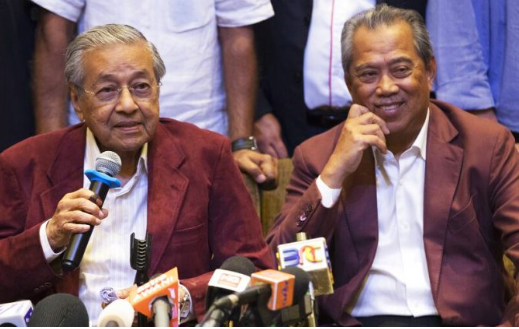Malay Muslim-first rhetoric doomed to fail

THE defeat of Barisan Nasional (BN) and the rise of Perikatan Nasional (PN) in the general election shocked many. Malaysians appeared to have chosen incompetence over corruption. Many picked the Malay Muslim-first coalition over the progressive Pakatan Harapan (PH). This is especially concerning in light of the failure of PN to manage the Covid-19 crisis.
The impact of a rhetoric is contingent on three factors: relatability, reach and repetition. PH advocates “Kita boleh”, which supports a Malaysian first nation and comes with institutional reforms. BN puts Malays while PN puts Malay-Muslims first. It is worth noting that the strengths of the Malay-Muslim first rhetoric are twofolds: it is extremely relatable as it concerns the identity of the majority, and have been repeatedly used over the past 60 years.
Time for the change of political rhetoric
The 2022 general election saw the increase of nearly six million voters, many to whom are young voters. They rejected the corrupt BN but saw PN as a substitute. Unlike in 2018, when there were only two main coalitions in the running (as PAS has yet to prove itself as a third force), this election saw three coalitions and 945 candidates standing for 222 seats. Not all the votes that BN lost went to PH. Therefore there is a need to change the focus of their rhetorics from attacking to attracting.
The Unique Selling Point (USP) of each coalition is as follows: BN was comparatively stable to the other two; PN was the Malay alternative; while PH offered real solutions to people’s problems.
Moving forward, what should Malaysians and the government coalition do?
There is an urgent need to switch public discussion from race to the real challenges facing Malaysia.
PH can offer real solutions to the latter because it is competent and incorrupt. This is what the other two coalitions cannot offer. PH should review its rhetorics and communication strategies. The best way to counter racial or religious rhetorics is not multiculturalism. Instead of insisting that we are all Malaysians, which would still be relating to race, PH should focus on inflation and lack of job opportunities. This is because Malay first rhetoric is extremely vulnerable before a relatable real problem. This is seen in the 2018 where the then Najib led government failed to reframe the Bersih rally to a 'Chinese rally to topply the Malay government', as well as the fall of the PN government due to mismanagement of Covid 19 in 2021 which was formed in the name of 'unity of Malay'.
PH could talk about Malaysian Muslim graduates working as rubbish collectors in Singapore, Malaysian graduates who opt to wash plates in UK instead of becoming a lawyer at home, and youth duped and trafficked to Cambodia because of their desire to search for better job opportunities. Back in the 1980s, Malaysia a hot spot for foreigners to work, but due to a corrupt and incompetent government, Malaysian youth are now seeking to leave Malaysia for jobs. They are being duped, mistreated or even killed by human traffickers.
What should BN, PN do?
GE15 provided a wake-up call for all coalitions, especially BN to start prioritising reforms. BN and PN should no longer play the race or religion card aim to provide solutions to Malaysians’ problems. This is because as economic problems such as inflation grow, such rhetoric is likely to lose relevance.
What should Malaysians do?
Malaysians need to be aware that race and religious rhetorics, especial fabrications, are political tools that do not benefit them. For example, before the Sheraton Move, politicians played up topics and events such as “three pages of Jawi” and the “Malay Dignity Congress” to fan anger among the races and to fabricate a threat to justify the need for a Malay-Muslim government.
We have to be aware that speech is meant to keep the government in check. We need to sift out distracting and emotive rhetoric by asking ourselves three questions: What are the problems that I would like politicians to solve? Do rhetorics resolve my problems? Is there political will and are the solutions feasible? By focusing our discussions on our problems, the government of the day will be forced to provide real solutions.Looking at the Sri Lankan economic crisis, we see parallels between Malaysia and Sri Lanka in how the governments deliberately exacerbates ethnic and religious divides to divert attention away from corruption and incompetence. Rampant corruption, incompetence and information manipulation have strongly contributed to the Sri Lankan economic crisis. It should serve as a lesson to Malaysians to shift the conversation away from race and religion. – November 29, 2022.
Published in The Malaysian Insight: Malay Muslim-first rhetoric doomed to fail | The Malaysian Insight